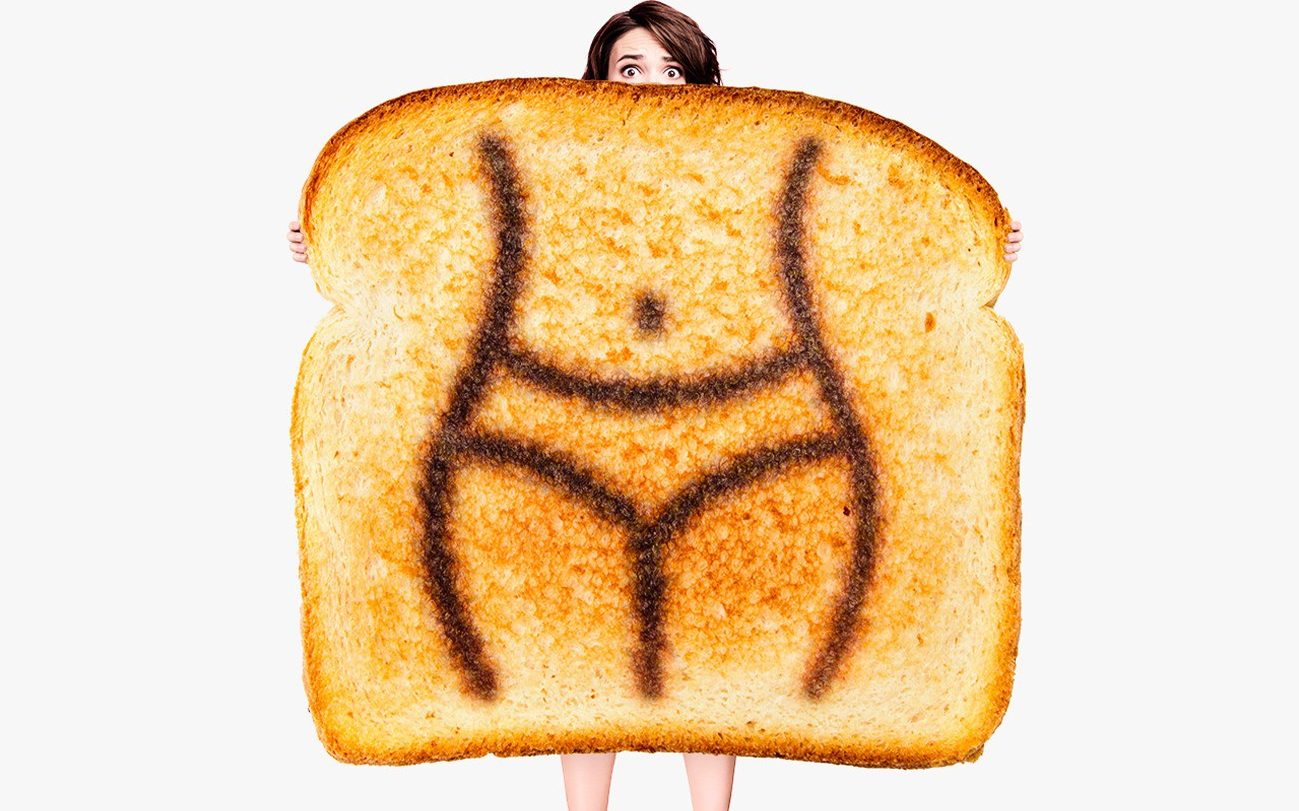
We’re hardwired to love bread in all its forms – sandwiches, bread baskets, hot buttered toast! – because it’s sustained us for 10,000 years. But recently, bread has developed a reputation as a nutritional bad guy.
In the continuing craze for low-carb diets, it’s accused of contributing to weight gain and metabolic problems, and spiking our blood sugar levels in unhealthy ways. Mass produced supermarket loaves have been slammed as unhealthy ultra-processed foods (UPFs), bereft of fibre and loaded with additives.
Thankfully a healthier loaf option from every supermarket is shown below, but it’s not great news for a lot of the products you’ll find in the bread aisle:
Are carb-rich foods like bread really bad for our bodies?
Many people avoid bread, along with other starchy carbs, because they think it’s unhealthy. The theory is that bread is an easily digested carb that our bodies quickly turn into glucose, causing blood sugar levels to rise and fall – or spike. The “highs” make us happy, but they also leave us feeling hungry again quickly, and make us crave that food more. It’s why some people refer to carbs as addictive.
There is evidence to suggest that extreme spikes in blood sugar, over time, can cause inflammation and increase our risk of conditions such as heart disease and Type 2 diabetes. And it’s true that bread is king of the carbs. “Compared to other starchy foods such as pasta, rice or potatoes, bread has a lower water content and therefore a higher carbohydrate content,” says Bridget Benelam, a nutrition scientist with the British Nutrition Foundation. For example, white bread contains around 48g of carbohydrate per 100g compared to about 37g for white pasta, 27g for white rice and about 17g for boiled potatoes.
, says a degree of blood sugar spikes after eating is normal, and generally don’t cause problems for healthy non-diabetics. “Obviously, excessive spikes can damage our health,” she says. But she believes carbohydrates like bread are vital to provide our bodies and brains with enough energy to function.
She stresses that not all carbs – or breads – are equal. “Wholewheat bread contains far more fibre than white bread, which is potentially a way to achieve a smoother blood sugar response,” she says. “For example, a wholemeal spelt loaf made with ancient grains is potentially a useful way of incorporating carbohydrates into the diet, and it also includes fibre and micronutrients.”
Can eating bread cause weight gain?
Much depends on how the bread is made and the types of grains it contains, says Dr Vanessa Kimbell, a bread and nutrition expert. “Refined, low-fibre breads can perpetuate hunger and elevate insulin levels, contributing to weight gain.”
On the other hand, wholegrain, rye and sourdough can actually help weight management, Dr Kimbell says. The reasons for this are complex but in simple terms, these breads contain more fibre, require more chewing and have a more complex structure than industrially processed white loaves. You eat less of them because they make you feel full.
Everyone’s physical response to bread is different, Dr Kimbell stresses, so there’s no “right” approach for everyone. “The key is to find the right type of bread that suits your dietary requirements.”
If you think you’re overeating bread, consider what you’re consuming it with before you ditch it completely. We all know white toast with honey barely touches the sides, so we reach for more. But fibre-rich baked beans on toast is much more satisfying.
Does bread cause health problems and bloating?
where your immune system attacks your own tissues when you eat gluten) and non-coeliac gluten sensitivity are both on the rise, says Dr Mahmood-Ahmed. But she says it’s difficult to pinpoint what role bread plays in this.
, which produces fluffy yeasted loaves quickly with the use of additives, is to blame. The theory is that the fermentation process used in Chorleywood bread is significantly quicker than for naturally leavened bread like sourdough, and this makes the bread harder to digest.
“It’s very difficult as scientists to unpick which bit of bread is causing the symptoms,” Dr Mahmood-Ahmed says. “It could be the emulsifiers in one person, or the preservatives in another. Or it could be other compounds and structures formed from the processing of bread that we haven’t really identified and understood.”
Many people also believe bread causes bloating, but there are many other possible triggers, including artificial sweeteners, caffeinated drinks or a combination of foods in the diet. “Bloating as a phenomenon doesn’t exist in isolation with bread, it exists in the context of the rest of the diet and what you’re eating on the whole,” says Dr Mahmood-Ahmed. What’s more, bloating isn’t always negative, she says, it may just be that your gut is processing fibre.
Is grain quality important?
Advocates of low-carb diets focus on the negatives of eating ultra-processed bread, highlighting issues such as lack of fibre, additives and the impact on blood sugar levels, says Dr Kimbell. “They miss out the fact that ‘good’ bread, made from diverse, sustainably farmed grains and long fermentation processes, is incredibly nourishing,” she says.
The quality and variety of grains in bread directly impacts gut health by providing a wide range of inexpensive, high quality and accessible types of fibre. “These fibres support a diverse gut microbiome, which is crucial for robust health,” Dr Kimbell says.
Bread is a UPF
UPFs, which include many mass-produced supermarket loaves, are a hot topic these days, as recent studies suggest they’re at the root of much of our poor health. Ultra-processed loaves are often low in fibre because the goodness has been refined out of the flour. And many contain additives including preservatives, emulsifiers and stabilisers, which are now being linked to conditions such as poor gut health.
Dr Mahmood Ahmed welcomes the publicity surrounding UPFs because it encourages us to scrutinise food labels more closely and better understand what’s in the products we buy. But for many people, artisan loaves, like sourdough – which don’t count as UPFs – are out of reach because they’re expensive.
“Vilifying sliced white bread in my opinion is not okay because it’s the only bread that large proportions of our society can afford,” Dr Mahmood Ahmed says. “Yes, it’s a UPF and yes there are better options that are denser in fibre and cause fewer sugar spikes. But the reality is that even sliced white bread is a source of nutrition.”
That’s because most wheat bread in the UK is made from flour fortified with iron, B vitamins and minerals. New laws requiring folic acid to be added to flour are due to be introduced this year to help prevent life-threatening brain and spinal conditions in foetuses.
The case for eating nutritious bread
Dr Mahmood-Ahmed urges everyone to embrace bread and buy the most nutritious kind we can afford. “There is no food culture in the world that doesn’t celebrate bread in some form – it’s deeply ingrained within our food culture and gives rise to so much joy,” she says. “It’s important to understand the pitfalls of UPFs and why alternative higher quality loaves are full of goodness and shouldn’t be lost from our diets.”
The best types of bread, from the UK’s top supermarkets
M&S
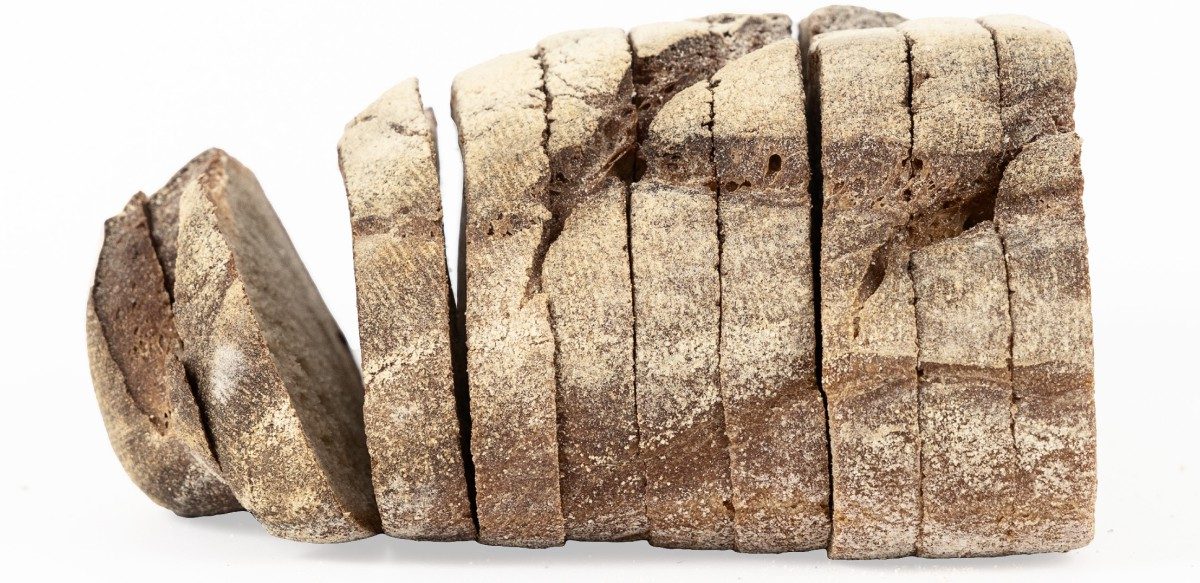
M&S Wildfarmed Wheat & Rye Flour Bread, £2.40 for 380g (63.2p per 100g)
Known for the quality of their own-brand products, unfortunately most of their sliced loaves contain UPF ingredients such as palm oil and emulsifiers. The “Wildfarmed” range is a better bet, made with high-quality British flour grown in nutrient-rich soil alongside plants and grasses to help restore biodiversity, soil, and ecosystem health, and no unrecognisable ingredients.
Waitrose
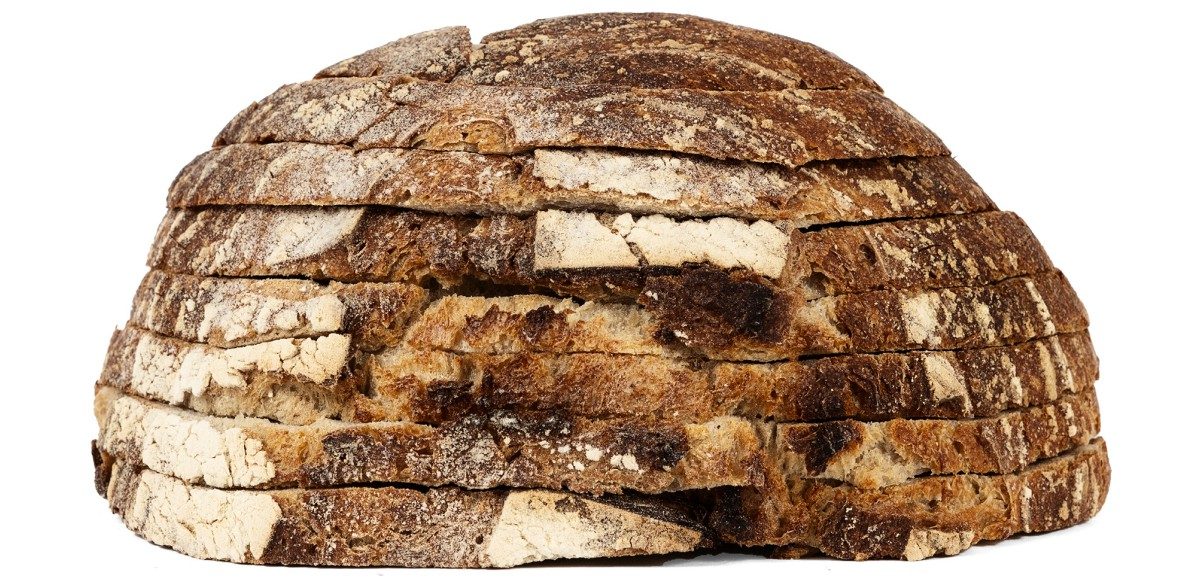
Waitrose No.1 White Sourdough Bread, £1.76 for 500g (35.2p per 100g)
If you shop in Waitrose, the loaves to reach for are their own-brand sourdoughs, either from the in-house bakery section – the San Francisco Sourdough Style Bloomer has a pleasingly small ingredients list – or their No.1 range of pre-sliced sourdoughs.
Aldi
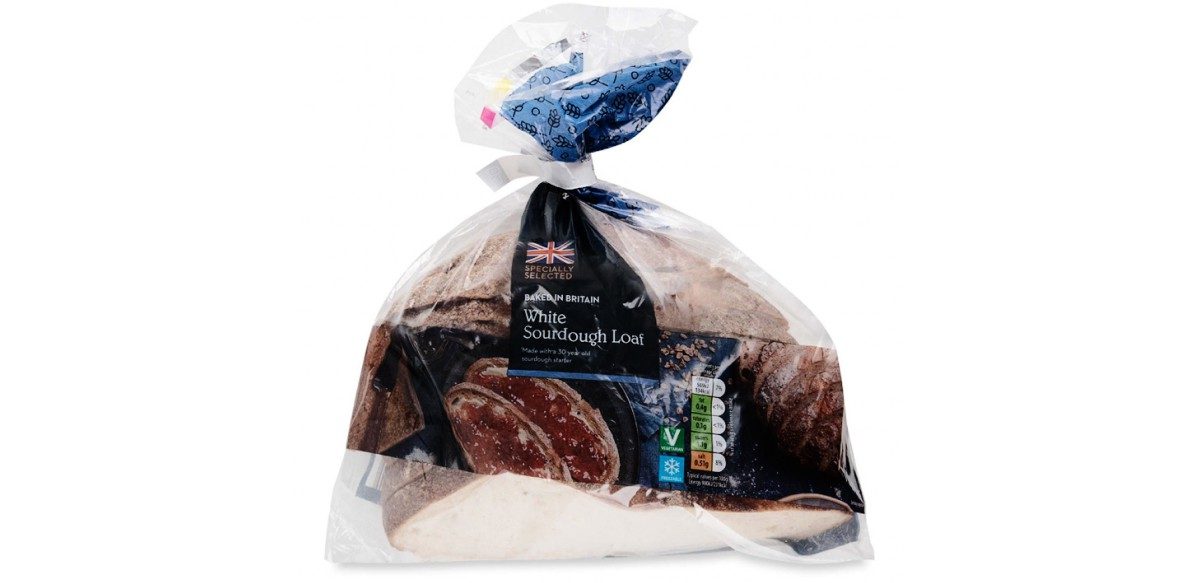
Aldi ‘Specially Selected’ White Sourdough Loaf, £1.59 for 500g (31.8p per 100g)
One winner of the cost of living crisis has been Aldi, with its keen prices and no-frills business model. But low cost doesn’t necessarily mean low quality; their ‘Specially Selected’ range of sourdough breads are UPF-free and excellent value. Choose from white, seeded or dark rye.
Lidl
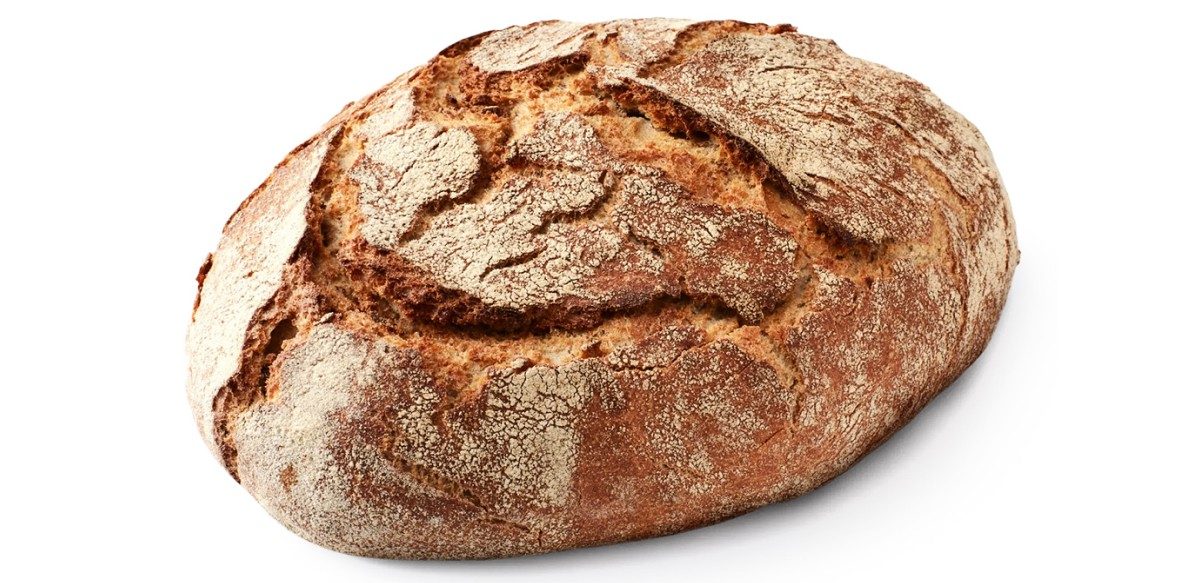
Lidl Crusty Rye Bloomer, £1.99 for 600g (33.2p per 100g)
Lidl is known for its extremely popular in-house bakery, but they could be more transparent regarding product ingredients, which are not listed on their website or at the point of sale. After further digging it transpires that most of their baked goods do contain UPF ingredients, with a notable exception being their Crusty Rye Bloomer, comprising just flours, water, salt, and yeast.
Sainsbury’s
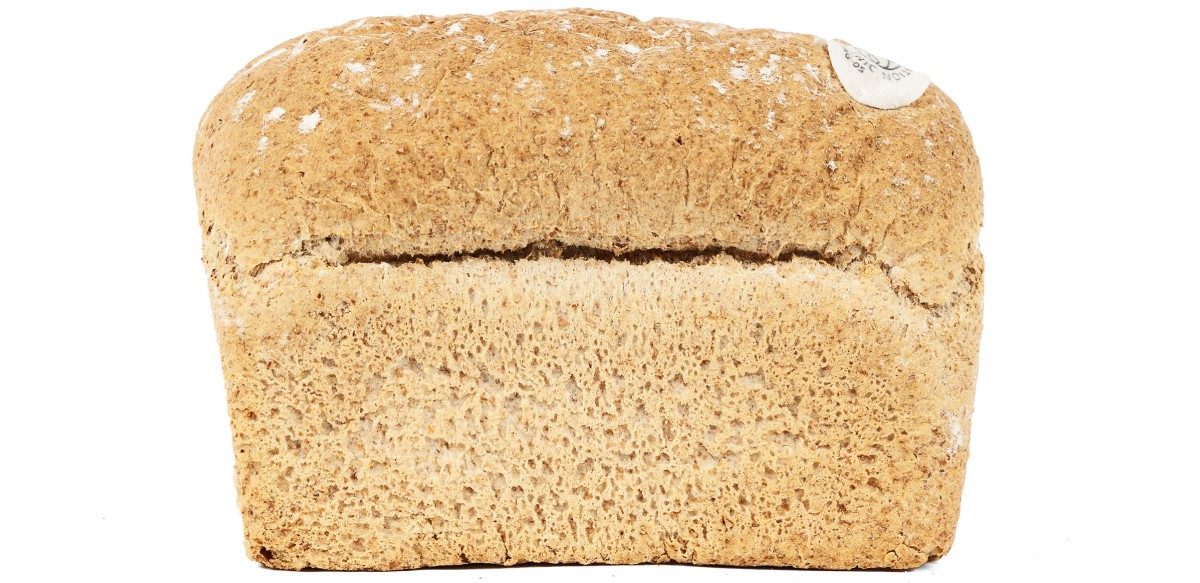
Sainsbury’s Wholemeal Bread SO Organic, £1.20 for 400g (30p per 100g)
Sainsbury’s gets the ‘best in-house bakery’ award, with simple ingredients (most are free of additives) and they are good value too. Many of their products do have ascorbic acid listed as a flour treatment agent but this is simply another term for vitamin C and is not considered UPF.
Tesco
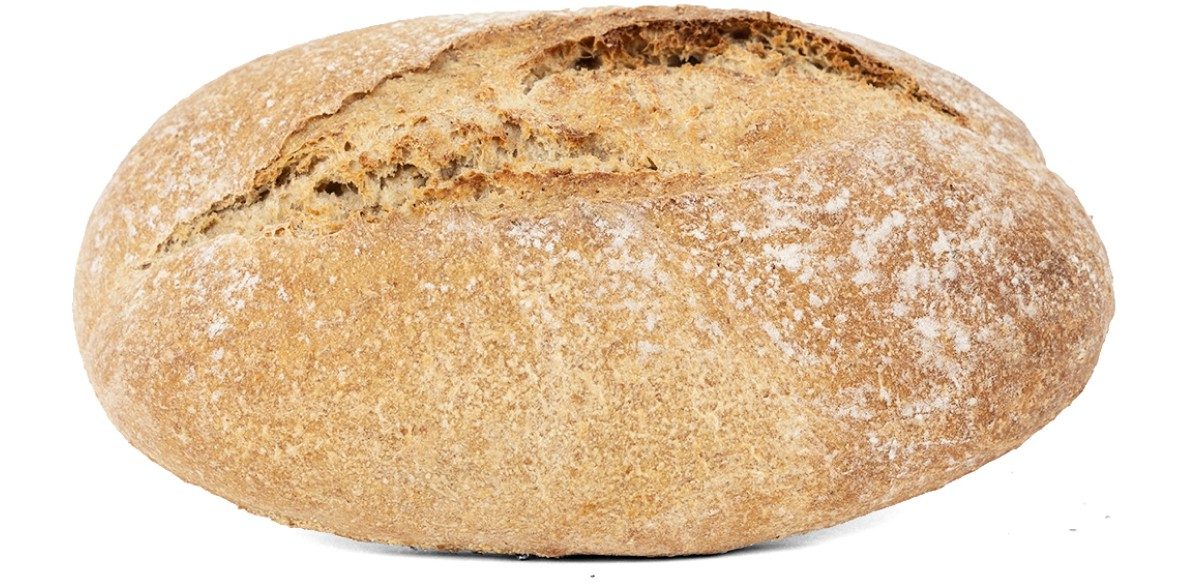
Tesco Brown Sourdough, £2.00 for 400g (50p per 100g)
Sadly even the Finest range of sliced breads were UPF, and most of the in-house bakery items also contained ingredients such as emulsifiers, dextrose and palm oil. Again, it was the sourdough loaves that came up trumps (although expensive), with a special mention for their own-brand ciabatta.
Asda
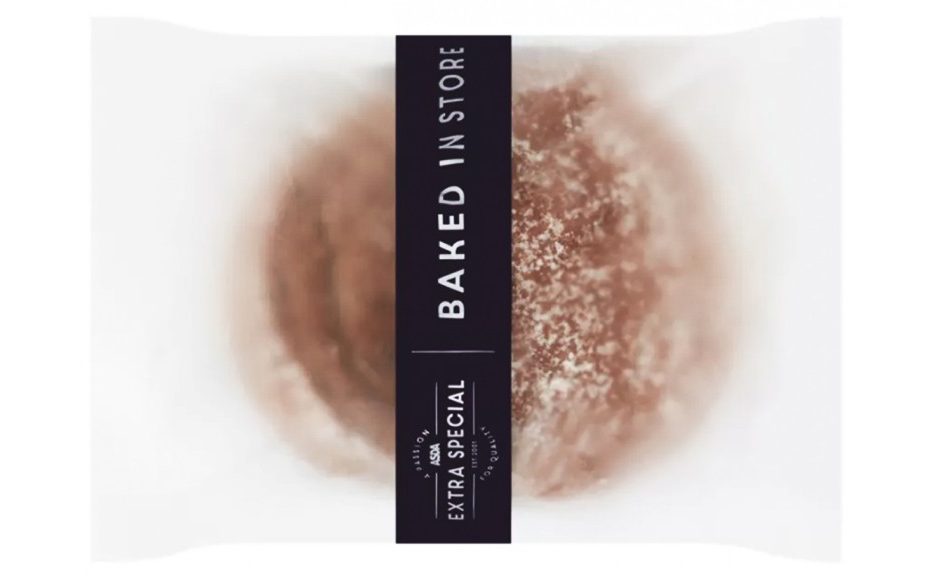
Asda Extra Special Parisian Bread, £2.00 for 400g (50p per 100g)
Asda has a huge range of bread available but the pre-packed, sliced options all contain additives to extend shelf-life. The more pricey ‘baked in store’ Extra Special range are the ones to go for, like the Extra Special Parisian Bread which, for some reason, contains rapeseed oil but is additive-free.
Morrisons
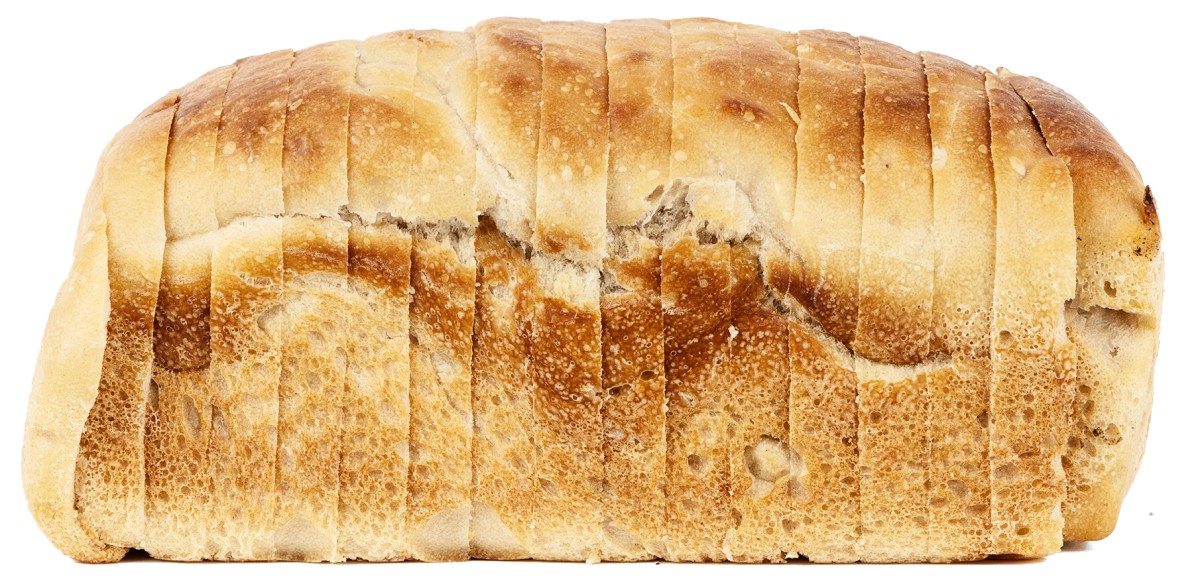
Jason’s White Ciabattin Sourdough (‘grains & seeds’ and wholemeal versions also available), £2.00 for 580g (29.3p per 100g)
I struggled to find any Morrisons own-brand breads that were UPF-free, but it does give me the chance to plug the excellent brand Jason’s Sourdough, which is available at most supermarkets now, including Morrisons. Their mission is to make proper bread more accessible to more people. Bravo!
Co-op
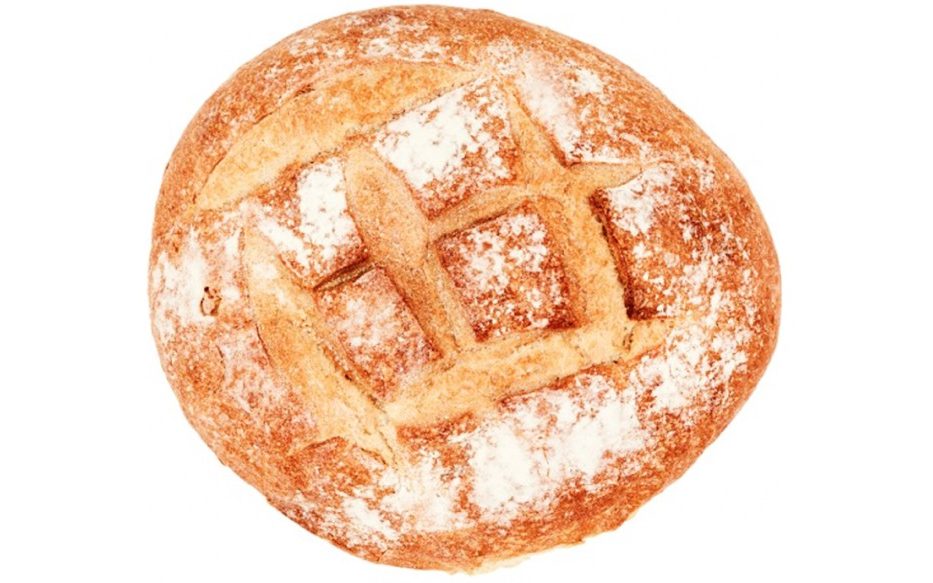
Co-op White Crusty Cob, £1.85 for 400g (46.3p per 100g)
Again, Co-op’s own-brand, sliced loaves were all UPF and the range from the in-store bakery was pretty limited. As such, the Co-op wouldn’t be my top choice for bread-buying, but if pushed I would choose their White Crusty Cob, which is free from UPF additives.
Other loaves to put in your basket
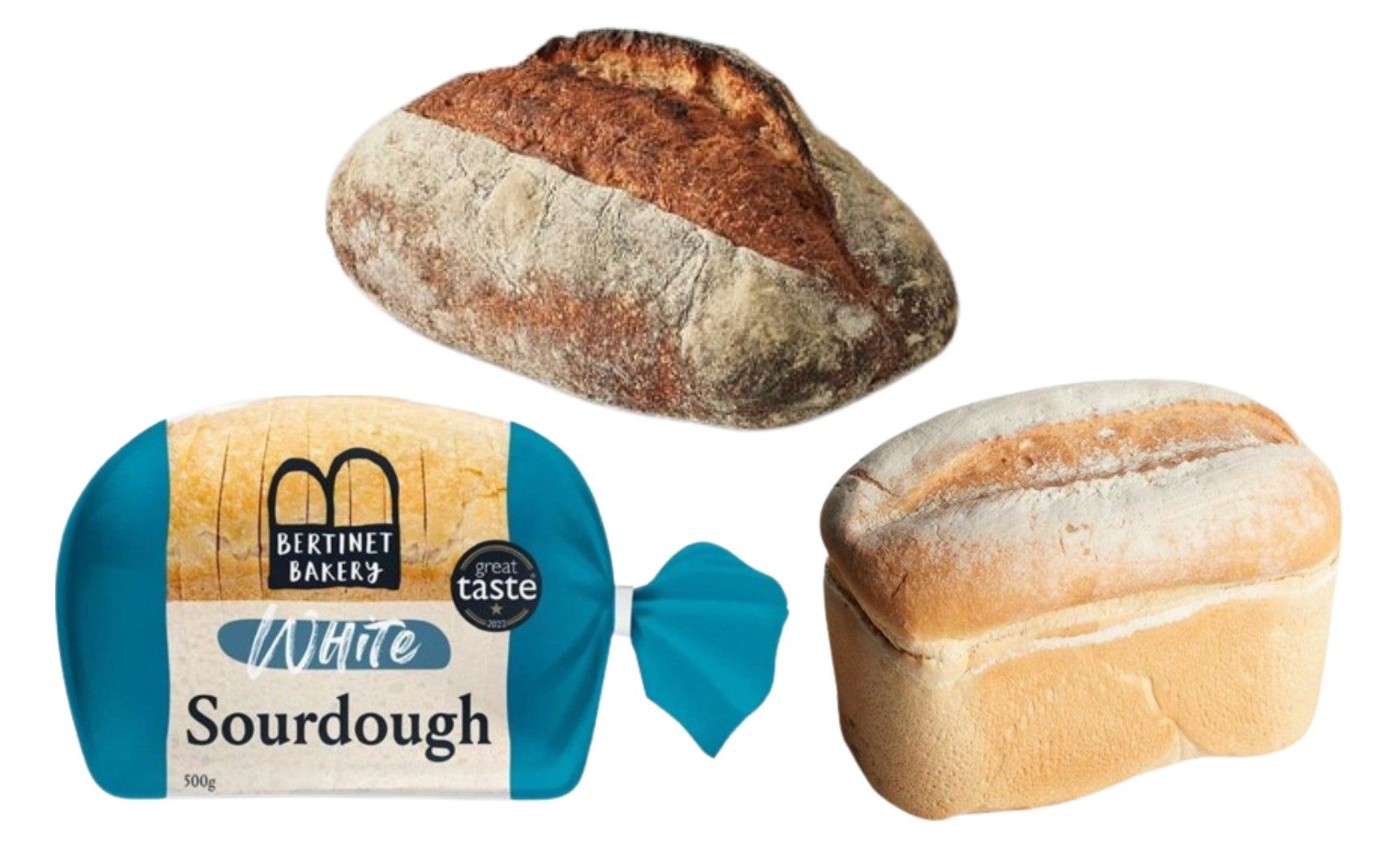
The most nutritious supermarket white
Bertinet Bakery White Sourdough, 500g for £1.68 (33.6p per 100g)
This ‘white’ bread also contains wholemeal and spelt flours for extra fibre, and is completely additive-free. Available from Waitrose.
The ultimate bread basket treat
Gail’s Dark Sourdough, £4.30 for 650g (66.2p per 100g)
Gail’s bakery fans will be delighted that their breads are now available from Waitrose and Ocado, not the cheapest but the real ‘UPF-free’ McCoy.
The best bread on a budget
Sainsbury’s Farmhouse Loaf White Bread, £1.45 for 800g (18.1p per 100g)
Well done to Sainsbury’s for providing a basic, white loaf that’s super cheap and free from nasties. This bread contains just flour, water, salt and yeast.
Recommended
How healthy is your supermarket loaf? Here are the ones to avoid
Read more
Play The Telegraph’s brilliant range of Puzzles - and feel brighter every day. Train your brain and boost your mood with PlusWord, the Mini Crossword, the fearsome Killer Sudoku and even the classic Cryptic Crossword.


Post a Comment
0Comments